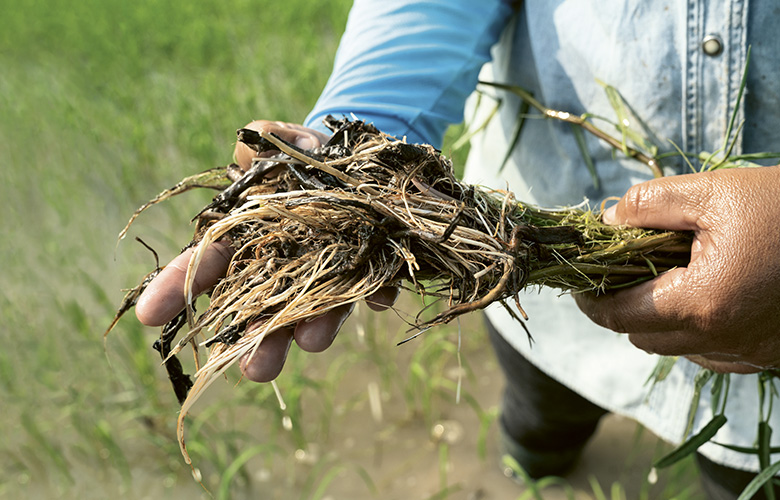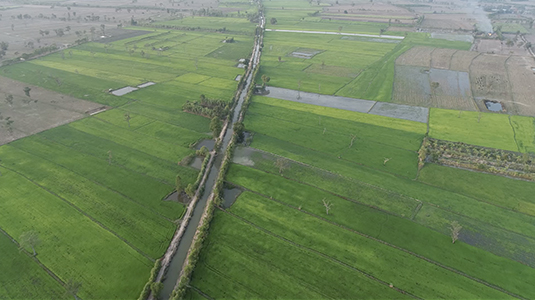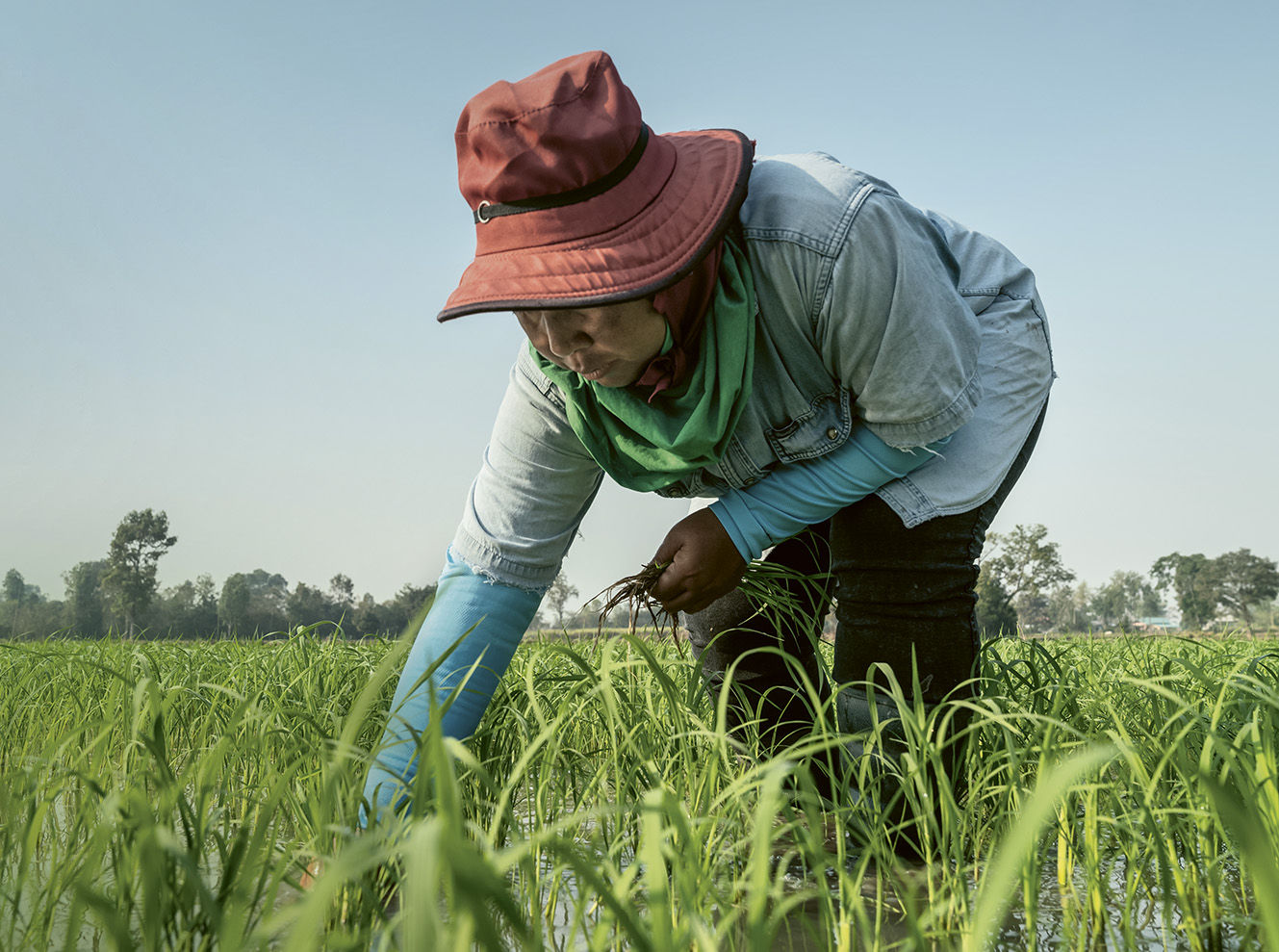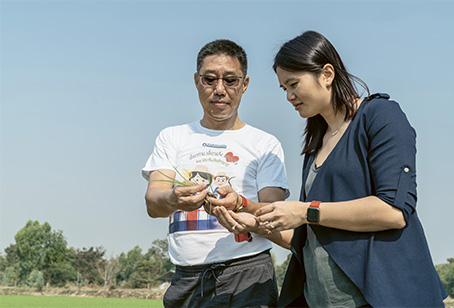From climate risk
The effects of climate change are profoundly impacting communities, people’s health and our natural environment. They are also visible in the risks we cover: over the last 25 years, average insured losses from severe weather events have more than doubled.
to strong communities
With our re/insurance solutions, we help people and businesses get back on their feet quickly after a disaster and prepare them for a world confronted with more climate risks.
The challenge
Climate-related hazards continue to wreak havoc

Climate change and natural catastrophes in numbers
USD 280bn
natural catastrophe protection gap (2017 and 2018 combined)
4th
warmest year on record (2018)
USD 155bn
total economic losses from natural catastrophes (in 2018)
Source: World Meteorological Organization; sigma 2/2019
Since 1970, the annual number of natural catastrophes has risen four-fold. Trends such as urbanisation and economic development increase the number of assets that are exposed to natural catastrophes.

To help vulnerable farmers, we need to work closely with local authorities to deploy our risk knowledge effectively.
Biggy Nguyen
Senior Client Manager, Swiss Re, Public Sector Solutions
Most losses are still uninsured, leaving millions of households and businesses in the most disaster-prone areas of the world without protection. Working with our partners and clients, we strive to design solutions that are effective, affordable and impactful.
Thailand is one of the world’s top rice exporters, and rice farming is often the only source of income for many local families. Catastrophes such as floods and droughts can have a devastating impact on these rural populations. For years, Thai local authorities and insurers have partnered to offer insurance protection. Swiss Re has been standing behind them.
The solution
Our solution is helping people on the ground rebuild their lives
Since 2011, Swiss Re has been offering reinsurance capacity to the Thai national rice insurance scheme.
Over the years, the insurance cover has been further developed, and now also includes other crops, such as maize, thus offering additional protection to over 2 million people. The scheme offers compensation of up to 65% of the average production cost a farmer would have to bear, if the crop is damaged before it can be harvested.
Budget certainty for the government and continued disaster relief assistance for the farmers: a win-win situation, made possible by re/insurance.
These are the people that still earn a living from agricultural activities. It is important that no one is left behind in the face of adversity.
Dr. Chutatong Charumilind
Secretary General in charge of the Insurance Premium Rating Bureau, Thai General Insurance Association
From risk to resilience
Watch our annual report video and see how we build resilience around the world.

The impact
Collaborating for a more resilient community
In 2019, a severe drought hit the Surin Province, a rural area peppered with paddy fields some 400 kilometres northeast of Bangkok.

Images (clockwise): Kanlaya Bunthan at work; Biggy Nguyen explores the rice fields.



Then, the rain came. As local farmers rushed to fertilise their crops, one of them, Kanlaya Bunthan, recalls how it was then that a disease started to kill the crops that had survived the devastation. “We lost more than half of our crops and the income we receive by selling them,” she says.
Kanlaya is one of hundreds of local Thai farmers covered by the insurance scheme, who receive funds after catastrophes to recoup their expenses and be able to buy new seeds and fertilisers.
The scheme proves that through public-private partnership and effective risk transfer to the private sector, the government can offer swift assistance to vulnerable populations. “This is why insurance matters,” says Anon Vangvasu, Executive Vice President at Bangkok Insurance Public Co. Ltd. and President of Thai General Insurance Association.
Swiss Re’s financial capacity has allowed payouts to be made even in the more challenging years, while key agricultural and climate expertise has paved the way for the programme to be expanded over time to new provinces and various types of crops.
These crops are our source of income and we need the funds to restore what was destroyed.
Kanlaya Bunthan
Rice farmer, Surin Province, Thailand
How old are you and what is your nationality? I am a 30-year-old Vietnamese-born German.
How long have you been working at Swiss Re? Six years.
What is your professional background? Prior to joining Swiss Re, I have been in Wealth Management at a big Swiss bank, developing tailored financial investment strategies for clients.
What makes you interested in working in re/insurance? Swiss Re’s vision of making the world more resilient is the key reason I have been working for the company for so many years. While the value of the re/insurance offering is not so commonly known by the public, I am constantly fascinated by the passion and expertise of the colleagues in the industry that come together day by day to deliver on the vision. Through my job at Swiss Re, I have discovered how to look at the world from new perspectives, such as wanting to do more for those who are unaware of the risks we can mitigate. And also personally, being more grateful and more eager to protect both who as well as what is most precious to me.
What do you enjoy the most when working on these products, such as the Thai crop scheme? The challenges the scheme is confronted with come in different forms and at different times. Thanks to the mutually shared appreciation that the Swiss Re team has with the local client, the Thai public stakeholders and the broker, we can work effectively to make the scheme more sustainable and meaningful for the farmers. This alignment of interest and commitment makes the scheme unique and rewarding to work on.
Show less